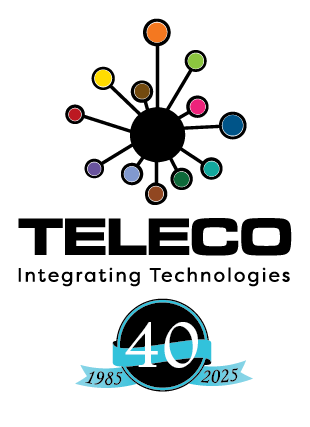
Recently, our Director of Operations was interviewed by Carl Schell of Keypoint Intelligence about our culture here and the changes we have seen as a company over the past 20 plus years. Check it out below.
Working for a locally owned business with a positive company culture is important to Penny Belluz. Since 1996, when she joined Teleco (originally an Avaya reseller and structured cabling firm), she has had the great pleasure of experiencing just that. Belluz was made a partner of the Thunder Bay, Ontario-based IT provider four years ago, and her passion for helping everyone is evident by her volunteer work with several organizations, including the United Way and Women In Action. An avid reader and podcast junkie, Belluz is a lover of the outdoors—boating, fishing, snowmobiling, snowshoeing—who relishes speaking at the Northwestern Ontario Innovation Centre’s annual Tech Week. At the end of the day, though, family is the driving factor in her life, be it with her husband and their two sons, or her colleagues.
Carl Schell: Talk to me about the camaraderie at Teleco. How has that helped fuel the success of the company?
Penny Belluz: Company culture is critical and is directly associated with success. It is essential to have a clear vision and mission, but it is also vital to create a positive work culture where people want to work and thrive. We are not a team because we are forced to work together—we’re a team because we respect each other and care for each other. Every person is a contributor, and we depend on each other to uphold Teleco’s reputation, quality, and prosperity. We live by the mantra “work hard, play hard” and love to spend time together outside the office: Golf tournaments, axe throwing, beer tasting, downhill skiing, and our November Friday team cookoffs are several things we enjoy. And when we volunteer as a group outside of Teleco, it allows us to see strengths and talents that are not apparent in a typical work week.
CS: Teleco was often referred to as “the other phone company” in your neck of the woods. Was it difficult to shed that label, and what did the company do to adapt and change?
PB: We recognized many years ago that phones were not going away, but we were transitioning in design from a separate box on the wall to a networked environment and, eventually, the cloud. We needed to stay relevant and bring new technology to our clients and community. The advancements in telephony changed our trajectory to become a full-service IT company. IT is much more than just calling a company when a piece of technology breaks—it’s a partnership with a trusted advisor who can fix broken tech and consult with you on how to effectively use technology. That’s what separates us from the competition. Implementing effective and reliable technology will not only increase your bottom line but enhance your client’s experience, too. By changing our core focus, we invested in hiring certified and experienced IT professionals, aligned ourselves with strategic IT partners and vendors, and doubled down on our current telephony technicians with retraining and certification. We investigated best-in-class tools to support our IT initiatives. If it’s not something we would invest in, then we wouldn’t want our clients to, either. I guess you can say we successfully evolved from the “other telephone company” to the “other IT company.”

Penny Belluz, Director of Operations at Teleco
CS: It goes without saying that every company needs to have a strategy around cybersecurity and invest in it. What has that journey looked like at Teleco?
PB: Most of our clients are in the SMB space, and the reality is that one in five small businesses will suffer a cyberbreach this year. We also know that 95% of all successful cyberattacks are caused by human error. Our focus is to advise our clients and community on the importance of educating themselves and their employees about common cyberthreats and how they can protect themselves. We offer a popular Cyber “Snacks and Facts” session where we do comprehensive cybersecurity training that includes phishing simulations to provide the essential knowledge and skills to strengthen the overall cybersecurity culture in the workplace. It’s the human operating system that plays a crucial role in technology and policies and procedures, and we like to focus on all three with our clients.
CS: You’re the leadership succession plan at Teleco. What do you see as being big factors moving forward in the IT landscape?
PB: COVID-19 accelerated the digital transformation journey for all businesses. We witnessed clients who had already adopted cloud technology make a seamless transition to working remotely without loss in productivity or efficiency—this reality will continue, and we want to help local businesses and organizations thrive and prosper through technology. We will always assist clients relying on old legacy PBX systems to upgrade to the cloud and take advantage of great collaboration tools. Cloud computing will be a significant factor in our growth moving forward, while we assist clients in implementing a system that is scalable, secure, and flexible and provides necessary, seamless data recovery. I see cybersecurity needs expanding and becoming essential as we protect office infrastructures as well as for remote and home users with new threats and vulnerabilities. Businesses will start to comprehend the importance of complying with cybersecurity standards and requirements like PIPEDA, NIST, and HIPAA. AI will impact SMBs, helping them work even faster and easier thanks to quality innovation. Technology is a fascinating industry to be in, and I can’t wait for the future.
